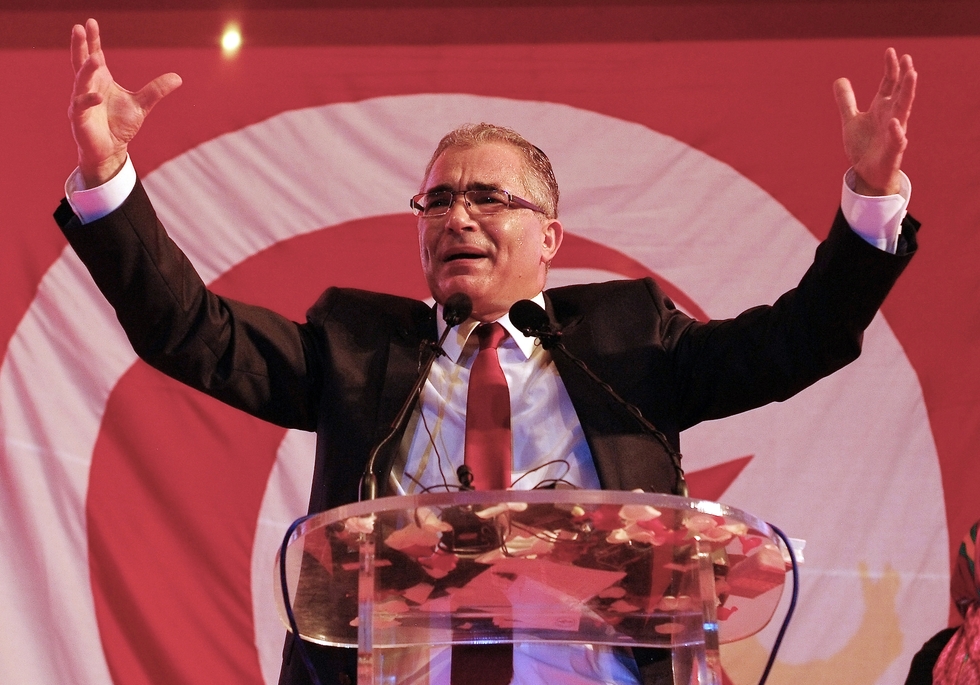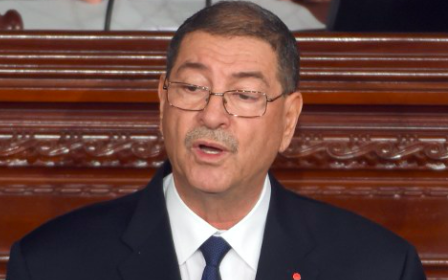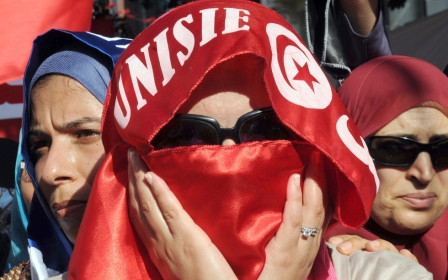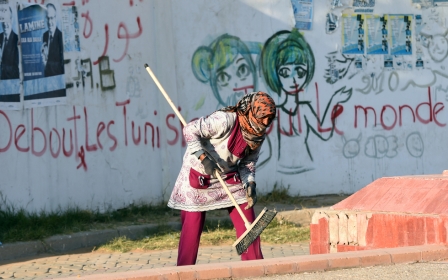Ennahda gains majority in Tunisia parliament after resignations

The moderate Islamist party Ennahda on Monday became the largest in Tunisia's parliament after several MPs of the secular Nidaa Tounes party resigned.
Seventeen Nidaa Tounes MPs vacated their seats last week in a row over the role of President Caid Essebsi's son in the party, and 11 more MPs followed suit on Monday.
The new resignations left the party with 58 seats out of a 217-member congress. Ennahda retains 69 seats.
Ennahda's new majority will not immediately cause any drastic changes to the current government, which is a coalition that includes the Islamist party and Nidaa Tounes.
President Essebsi's centre-left Nidaa Tounes party has been been riven by months of infighting, with the party’s former general secretary Mohsen Marzouk accusing Hefedh Caid Essebsi, the president's son, of attempting a power grab.
After Hafedh was appointed as the legal representative and the new general secretary of the party's central committee, critics feared a hereditary power transfer and a return to the days of former dictator Zine El Abidine Ben Ali.
The party has been split for months between support for Marzouk, a founding member, and the president's son.
Marzouk resigned in late December, and has said he will form a new Tunisian political party.
Weekend conference
During a conference in Sousse on Sunday, Nidaa Tounes extended a warm welcome to the leader of the rival Ennahda party, Rachid Ghannoushi.
The conference came just days after a major reshuffle saw top cabinet posts like interior and foreign minister reassigned.
During the conference, Ghannoushi’s seven-minute speech was interrupted by applause from the delegates on 17 separate occasions.
In his speech, Ghannoushi praised Essebsi, giving his support to the leader’s “politics of concord”.
“I am happy to see a strong, united Nidaa Tounes, and I am sure that President Caid Essebsi is also happy to see a strong, united Ennahda,” he added.
Nidaa Tounes was founded in 2012 in responce to the Ennahda party taking power in the post-revolution parliament. The centre-left party is a secular alliance made up of leftists, nationalists and former members of Ben Ali's government. It gained a majority in parliament in 2014, when Essebsi became president.
Tunisia's democratic transition following the 2011 Arab uprisings has largely been a success story, with the country adopting a progressive constitution in January 2014.
However, Tunisia has also faced sporadic attacks by hardline militants, including a bloody attack on the resort town of Sousse that killed 38 people, 30 of them British tourists. Thousands of young Tunisians have joined militant groups including Islamic State to fight in Syria and Libya.
The country has also struggled to revive the economy and provide work opportunities - particularly for its young people, who ignited the 2011 revolution that toppled Ben Ali largely based on economic disenfranchisement.
New MEE newsletter: Jerusalem Dispatch
Sign up to get the latest insights and analysis on Israel-Palestine, alongside Turkey Unpacked and other MEE newsletters
Middle East Eye delivers independent and unrivalled coverage and analysis of the Middle East, North Africa and beyond. To learn more about republishing this content and the associated fees, please fill out this form. More about MEE can be found here.




